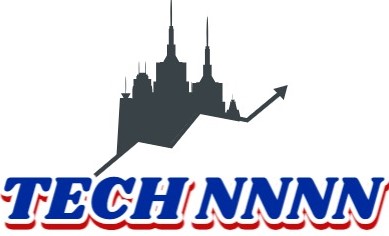Developing Talent Retention Programs 3512651695

Organizations face increasing challenges in retaining top talent amidst a competitive landscape. Developing effective talent retention programs is crucial for sustaining employee engagement and minimizing turnover. A strategic approach focuses on fostering a supportive workplace culture, providing professional development opportunities, and recognizing employee contributions. As organizations implement these initiatives, they must also consider the role of flexibility in work policies. What further strategies can enhance these retention efforts?
Understanding the Importance of Talent Retention
Understanding the importance of talent retention is crucial for organizations aiming to maintain a competitive edge in today’s dynamic business environment.
Effective retention strategies directly influence employee engagement, fostering a sense of belonging and commitment.
Creating a Supportive Workplace Culture
A supportive workplace culture serves as a foundational element for effective talent retention strategies. It fosters employee engagement through open communication and recognition, enhancing morale and productivity.
Additionally, prioritizing workplace diversity cultivates an inclusive environment where varied perspectives are valued, promoting innovation. Such a culture empowers employees, empowering them to contribute fully, ultimately reducing turnover and enhancing organizational success.
Offering Opportunities for Professional Development
Offering opportunities for professional development is crucial for enhancing employee engagement and retention.
Continuous learning initiatives, along with mentorship and coaching programs, serve as effective strategies to foster skill growth and career advancement.
These elements not only empower employees but also align their personal goals with organizational objectives, creating a mutually beneficial environment.
Continuous Learning Initiatives
Many organizations recognize that continuous learning initiatives play a critical role in fostering employee engagement and retention.
By utilizing e-learning platforms, they provide accessible resources for employees to enhance their skills. Incorporating skill assessments enables tailored development paths, ensuring employees can pursue growth aligned with their career aspirations.
Such strategic investments not only improve individual capabilities but also strengthen organizational culture and performance.
Mentorship and Coaching Programs
While fostering a culture of continuous improvement, organizations increasingly recognize the value of mentorship and coaching programs as essential components of professional development.
These initiatives provide significant mentorship benefits, enhancing employee engagement and retention.
Recognizing and Rewarding Employee Contributions
Recognizing and rewarding employee contributions is critical in fostering a motivated workforce.
Celebrating achievements publicly and implementing targeted incentive programs can significantly enhance employee engagement and satisfaction.
These strategies not only acknowledge individual efforts but also promote a culture of appreciation within the organization.
Celebrating Achievements Publicly
Celebrating achievements publicly serves as a vital component of effective talent retention programs, fostering a culture of appreciation and motivation within the workplace.
Team recognition during milestone celebrations not only boosts employee morale but also reinforces shared values and goals.
Such acknowledgment encourages individuals to excel, ultimately contributing to higher retention rates and creating an environment where talent is valued and nurtured.
Implementing Incentive Programs
Implementing incentive programs effectively acknowledges and rewards employee contributions, driving engagement and productivity within organizations.
Strategic bonus structures can enhance employee engagement by aligning personal goals with organizational objectives. Moreover, recognizing achievements fosters a culture of appreciation, motivating individuals to excel.
Implementing Flexible Work Policies
As organizations navigate the evolving landscape of work, the adoption of flexible work policies has emerged as a critical strategy for enhancing talent retention.
By offering remote work, flexible hours, and telecommuting options, companies promote work-life balance and employee autonomy.
Implementing hybrid models, family-friendly policies, and adaptive schedules enhances virtual collaboration and integrates productivity tools, fostering an environment conducive to employee satisfaction and retention.
Gathering Feedback and Making Continuous Improvements
Flexible work policies serve as a foundation for fostering employee satisfaction, but their effectiveness hinges on the organization’s ability to gather feedback and make continuous improvements.
Key strategies include:
- Conducting regular employee surveys.
- Establishing effective feedback loops.
- Analyzing data to identify trends.
- Implementing changes based on insights.
This proactive approach ensures that employee needs are met, enhancing retention and overall workplace morale.
Conclusion
In conclusion, developing effective talent retention programs is crucial for organizations seeking long-term success. As the adage goes, “A happy employee is a productive employee.” By fostering a supportive workplace culture, providing professional development opportunities, recognizing contributions, and offering flexible work policies, organizations can enhance employee engagement and reduce turnover. Continuous feedback and improvement will further strengthen these initiatives, ensuring that talent remains invested in the organization’s future, ultimately securing a competitive advantage in an ever-evolving business environment.




